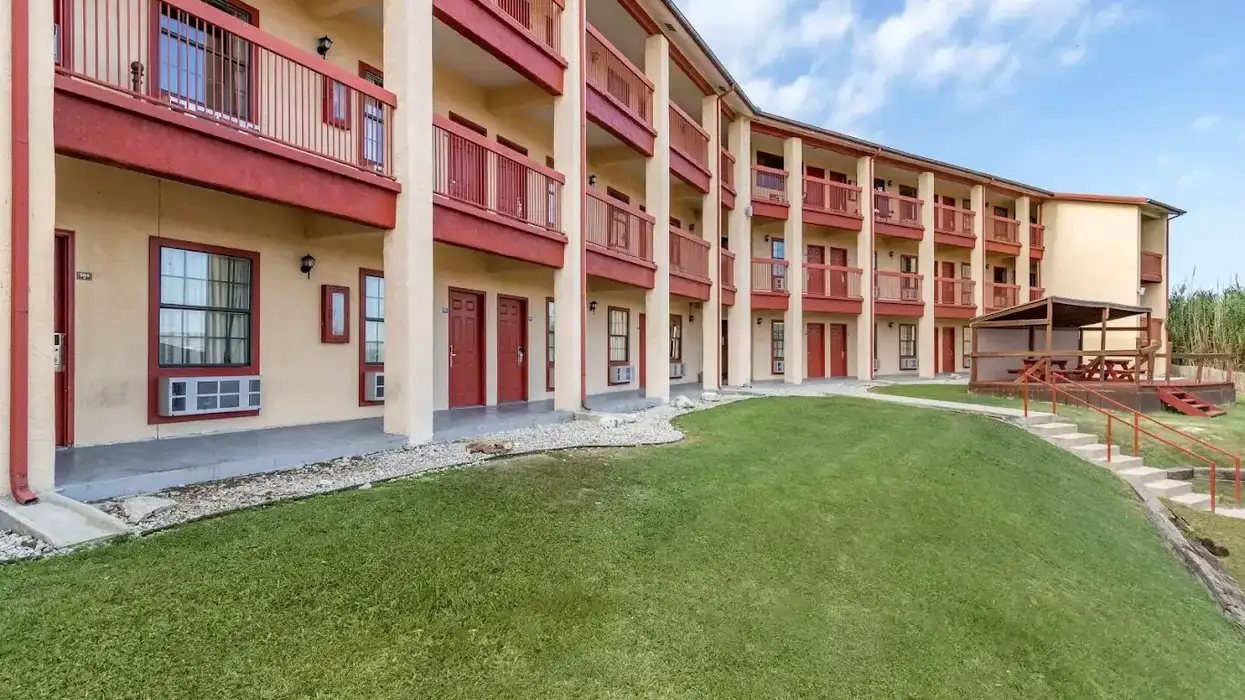HOTELIERS HAVE THE opportunity to hear directly from a Congressional leader about the debate over the next round of federal stimulus to counteract the economic impact of COVID-19. Speaker of the House Nancy Pelosi sat down for American Hotel & Lodging Association’s most recent installment of its The Forum: An AHLA Experience webinar series.
Pat Pacious, Choice Hotels International president and CEO, also was a guest on the webinar Wednesday led by Chip Rogers, AHLA’s president and CEO. The trio discussed the Health and Economic Recovery Omnibus Emergency Solutions (HEROES) Act, which the Democrat controlled House passed in May.
They did not mention the Republican’s own stimulus bill, the Health, Economic Assistance, Liability Protection and Schools (HEALS) Act announced July 28 in the Senate.
Rogers said the hotel industry is depending on some form of federal aid as the pandemic continues to rage.
“To put it succinctly, we’re still in survival mode, a place where we didn’t expect we’d be just six months ago,” Rogers said.
In January, biggest problem the industry faced was not having enough people to staff hotels, he said. Now, millions of hospitality workers are out of work despite previous stimulus acts that included initiatives such as the Small Business Administration’s Economic Injury Disaster Loans, the Paycheck Protection Program and the Main Street Lending Program.
“Our unemployment rate in our industry is probably over 50 percent,” Rogers said. “Another round of PPP for businesses that have been hit the most would probably be extremely helpful.”
Also, he said how to service debt, from commercial mortgage-backed securities loans and otherwise, is probably what keeps most hoteliers up at night.
Pelosi said since the HEROES Act passed the House three months ago 3 million more people have been added to the list of those in need of the assistance the bill would offer. The only way to open the economy safely, she said, is to attack the virus.
“I’m optimistic that we will reach an agreement,” she said.
The HEROES Act includes an employee retention tax credit that Pelosi said she knows is of interest to hoteliers. It also contains a “second dip” for extending the PPP.
“It’s not there yet, but [Rep. Nydia Margarita Velázquez Serrano] who does our small business piece has been working in a bipartisan way to see how we can get that second bite of the apple,” Pelosi said.
Also hope to have tax credits for healthy workplace initiatives.
“You want the travel tax credit. I don’t know that that would be part of this type of bill,” Pelosi said. “But it’s certainly something that we should be considering.”
Pacious said the pandemic has been the most difficult period of time for Choice’s 13,000 franchisees. All of them, he said, are small business owners who are trying to keep employees on the payroll while also feeding their own families.
“I’m pleased to hear you mention that recapitalizing the PPP loan program is something that both sides appear to be willing to do,” Pacious said. “About 70 percent of our owners have taken advantage of a PPP loan. I know in the future there is talk, which is good, to limit access to that program to those businesses that are really, severely impacted.”
However, Pacious said they are concerned about talk that the program may have a 50 percent economic loss threshold for participation.
“That’s really too high to provide meaningful relief to our small business owners,” he said. “We’d like to see it more in the 25 to 30 percent range. You have to think about our business, it’s an asset heavy business. You have to own a building, and the operating margins are small, so there’s a significant amount of debt that our owners have to deal with and servicing their commercial mortgage is very important to our owners.”
He also supported the possibility that the act would provide forgiveness for loans under $150,000, but the application for the process needs to be simplified to require minimal documentation. Also, destination management organizations, which are not-for-profit agencies that promote travel to specific regions, should be qualified for the PPP program.
Pelosi said Congress also has to ensure that the PPP funds are more equally distributed than previous disbursements to include women and minority-owned businesses.
“There are much smaller businesses, much more diverse ownership of business, that should be participating in this,” Pelosi said. “They fell by the wayside last time because they didn’t have a bank relationship.”
Rogers pointed out the importance of stimulating the overall economy as well.
“When people are fearful of traveling, part of it may be because they don’t want to get sick, but part of it may be because they don’t feel like they’re in an economic position to do so,” Rogers said.
Pelosi said the current discussion over direct payments to individuals and families included in the stimulus acts were part of that process, including some of the $3.4 trillion in the HEROES Act. People are less willing to risk the money they have, she said.
“The money in people’s pockets, whether it’s the $600 direct payment or it’s the help with rent, that’s all stimulus,” she said. “The more people have confidence to spend, the better and sooner our revival.”
In many ways, the hotel industry is discretionary, Pelosi said.
“People decide ‘Do I want to go now, or do I want to go next year?’” she said. “So, we want them to decide, in a discretionary way, to spend. That’s why we want to put money in their pocket, to spend.”
If PPP is a big success, Rogers said, the Main Street program has been a big failure for anyone whose business depends on commercial real estate.
“The formula for accessing funds through the Main Street lending program pretty much precludes anyone who has a significant amount of debt or really any real estate debt,” she said. “I’m not aware of any hotel company or any individual hotel that has been able to gain access to the Main Street Lending Program because of that debt test.”
Pacious also said the Main Street program should be expanded because until now it has been underutilized.
Rogers also pointed out the importance of addressing the debt faced by hotel owners. In the CMBS market, he said, delinquency rates are at 25 percent, 50 percent in New York.
“If some of these properties start falling into foreclosure it does begin to spiral downward and it pulls a lot of people with them,” Rogers said. “Once a hotel goes into foreclosure and closes its doors for good, it’s going to be many, many years before it opens its doors again.”
After Pelosi left the call, Pacious and Rogers wrapped up with a focus on the human impact of the crisis.
“We’re still in the middle of it. A lot of owners make their money in summer and a second wave of virus cases is creating a lot of uncertainty around the back half of the year as well,” Pacious said. “We need to make sure that our hotels have access [to the PPP] and have access to the forgiveness part of that program in a meaningful way to get through this. I think when we write the history of this three or four years from now, there’s going to be a lot of positives around leadership, a lot of positives around people pitching in together to get our industry and our country through this pandemic.”





